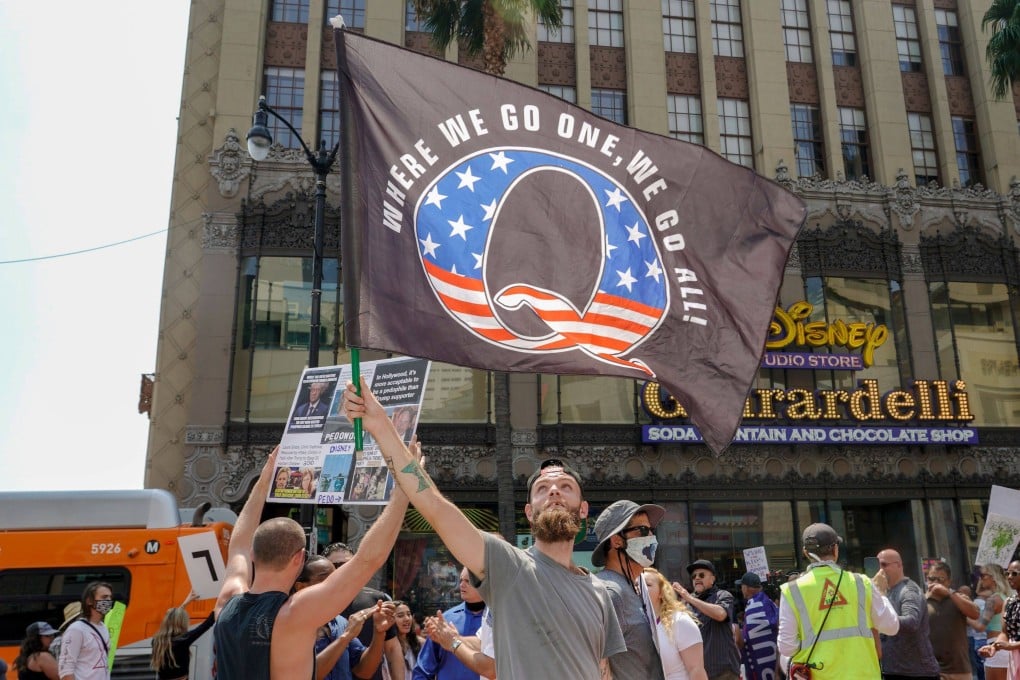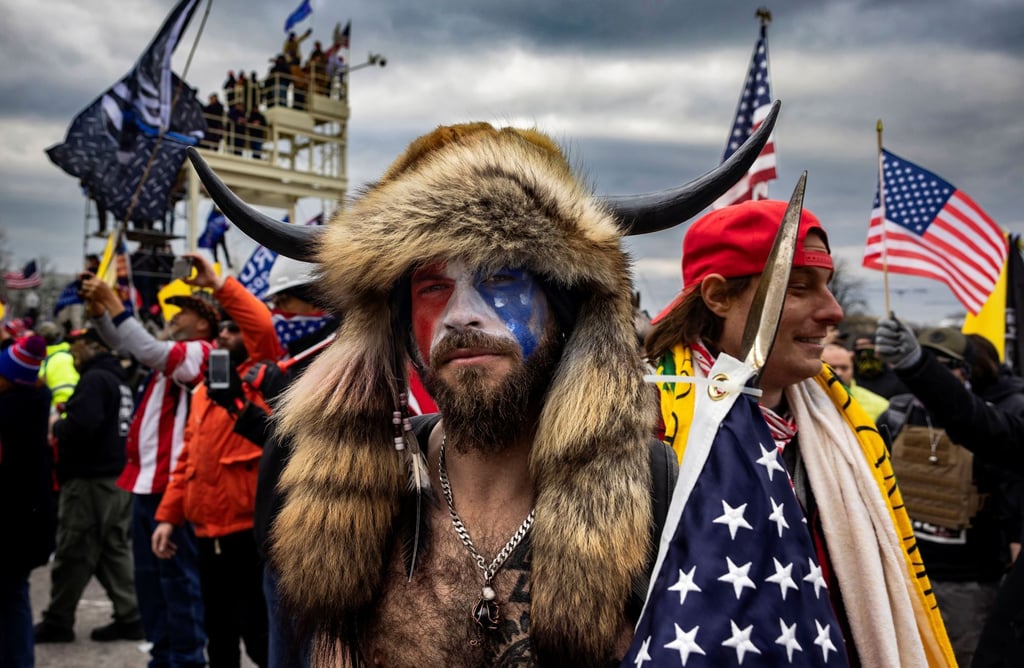Advertisement
China amplifies QAnon conspiracy theories on Facebook more than any other country, report says
- The Soufan Centre says China and Russia are driving wild QAnon conspiracy theories on social media to sow discord in the US
- China has been implicated in other disinformation campaigns, including those focusing on Covid-19, but Beijing denies involvement
Reading Time:3 minutes
Why you can trust SCMP
12

China is currently the most active state actor in amplifying QAnon-related conspiracy theories on Facebook, according to the latest report published by the Soufan Centre, a non-profit organisation founded a former Federal Bureau of Investigation (FBI) agent.
The analysis, included in the report Quantifying the Q Conspiracy: A Data-Driven Approach to Understanding the Threat Posed by QAnon released Monday, said that foreign states including China, Russia, Iran and Saudi Arabia have been utilising narratives related to the QAnon conspiracy theory to sow discord in the US.
“States like China and Russia utilise QAnon-narratives as part of their disinformation campaigns, increasing the reach and resonance of the conspiracy theory to susceptible audiences in the United States and beyond,” the report said.
Advertisement
“Russia is often considered the most capable and sophisticated external driver of disinformation. Interestingly, however, our analysis shows that China is currently the state actor most involved in amplifying QAnon narratives on Facebook,” it added.
The far right-wing conspiracy theory, involving “deep state” satanic cabals, paedophile rings run by “global elites” and Covid-19 misinformation, has been brewing on online forums and social media for years. But its reach became apparent after the storming of the US Capitol by supporters of former US president Donald Trump in January, including some with ties to the QAnon movement that also peddled US election fraud conspiracy theories.

The Soufan Centre said it analysed 166,820 Facebook posts between January 2020 and February 2021, finding that the level of foreign influence remained constant at an average of 19 per cent.
Advertisement
Select Voice
Choose your listening speed
Get through articles 2x faster
1.25x
250 WPM
Slow
Average
Fast
1.25x